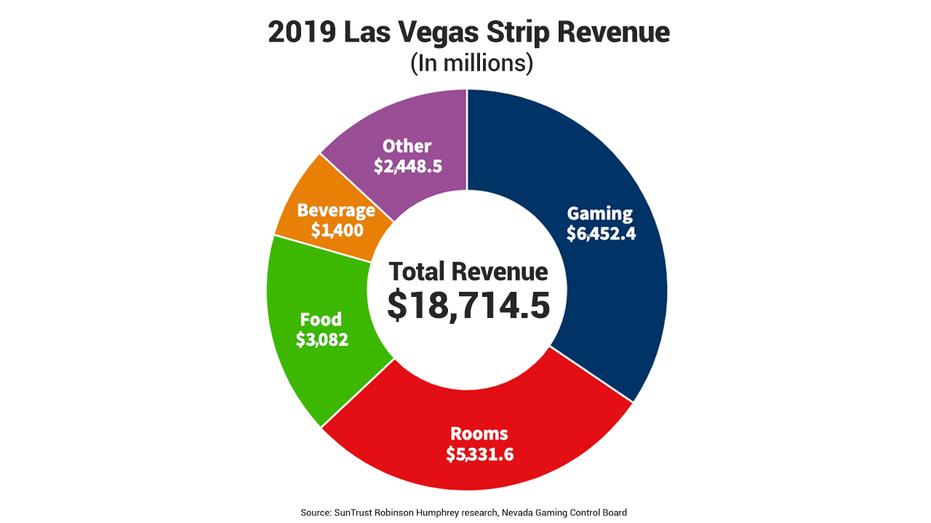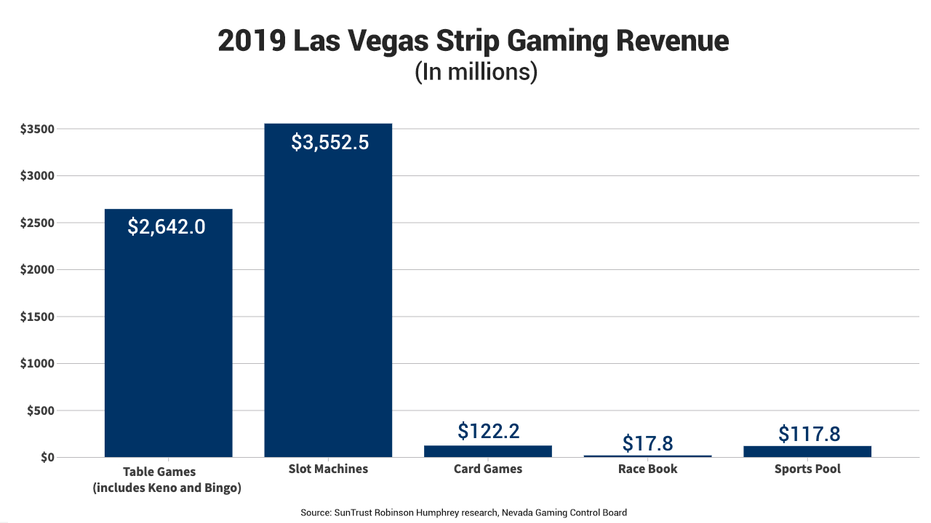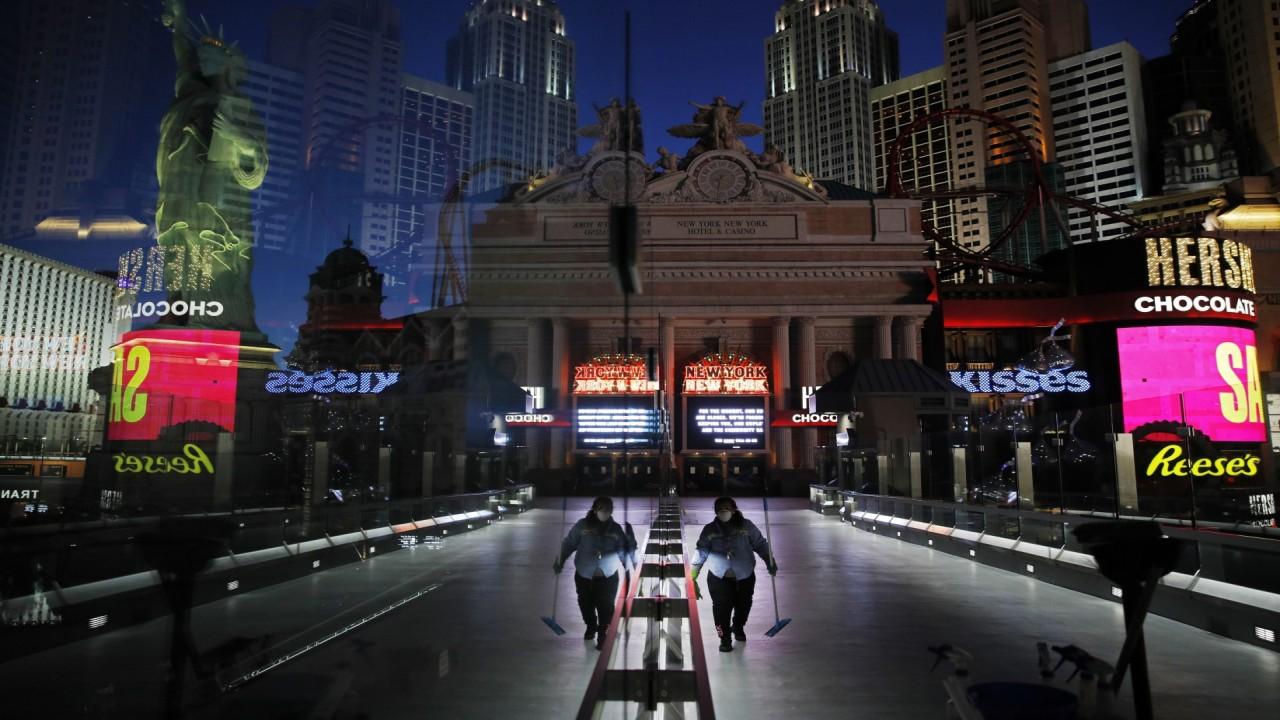Coronavirus reopening plan deals Las Vegas casinos a losing hand
'Never write Vegas off'
Las Vegas casinos will get hit with a “double whammy” of lower revenue and higher promotional spending as they alter their businesses to deal with the realities of COVID-19, according to one Wall Street analyst.
The Nevada Gaming Control Board said Saturday that when casinos reopen they must limit occupancy to no more than 50 percent and reduce the number of gaming machines on the casino floor and betting positions per table in order to ensure proper social distancing between patrons. The plans will also make certain proper cleaning and disinfectant procedures are followed.
CASINO GIANT REVEALS WHEN LAS VEGAS STRIP MAY LIGHT UP AFTER CORONAVIRUS
“The challenge with the Strip is that it’s a destination market,” Barry Jonas, a New York-based analyst for investment firm SunTrust Robinson Humphrey, told FOX Business. “A lot of your VIPs, per se, are coming in on an airplane.”
The Las Vegas Strip raked in $18.7 billion in revenue last year, almost two-thirds of which came from outside the casino. A lower amount of air travel into Las Vegas means less money being spent not only on nightlife and entertainment but also on slot machines and table games.

While nightlife may take more time to ramp back up, the casinos are setting out a path to reopening their doors that will "prioritize health and safety while providing a quality patron experience and enabling our industry’s employees to safely return to work,” Casey Clark, senior vice president of strategic communications at the American Gaming Association, told FOX Business.
Any signs of life from the Las Vegas Strip would be welcomed by casino operators that have seen their business evaporate as they were forced to close their doors on March 18 for the first time since former President John F. Kennedy’s death in 1963.
The S&P 500 Casinos & Gaming subsector, which includes Las Vegas Sands, MGM Resorts and Wynn Resorts, has seen its value fall by $22.9 billion, or 44 percent, to $52.3 billion this year, according to Dow Jones Market Data.
Stocks In This Article:
Although the number of patrons being allowed into a casino will be reduced by 50 percent, that likely won’t translate to a one-to-one hit to gaming revenue, according to Jonas.
Slot machines, which account for about half of the revenue, typically have a utilization rate of about 50 percent.
However, some table games will see a sharp drop in revenue as the number of betting positions are reduced from six or seven per table to two. The new rules “potentially hurt the whole experience of certain games like craps,” Jonas said, noting that having crowds around the table is part of the excitement.

As occupancy is cut in half, Las Vegas casinos will shift their attention to VIP customers, Jonas said. Because the Las Vegas Strip is a destination market, charter flights, free rooms and promotions are “on the table,” leading to operators seeing their margins squeezed as they “start fighting for less players,” he added.
Still, there are some rays of hope coming from the biggest operators in the industry.
Speaking on the company’s first-quarter earnings call on Thursday, Corey Sanders, chief financial officer of MGM Resorts International, noted about 50 percent of traffic into Las Vegas is from automobiles and that the casino operator expects “some pent-up demand.”
Robert Goldstein, president and chief operating officer at rival Las Vegas Sands, said earlier in April that while his company was unsure of what air travel would look like, “group business appears to be out there for August and into the fall.”
While Jonas said you can “never write Vegas off,” he notes there are “severe challenges” ahead, including a growing presence of online gaming.
CLICK HERE TO READ MORE ON FOX BUSINESS
“I think for sure you're going to see more of a shift to online,” he added. “The question becomes does this form a catalyst for states to legalize sports betting and then more sports betting, online poker, blackjack, kind of I-gaming, if you will. And we think it does.”




















